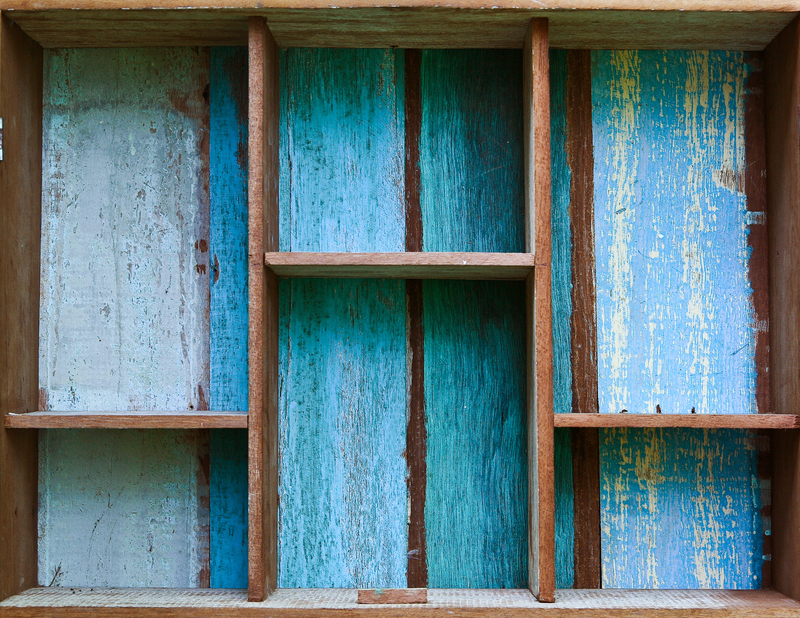Guide to Transitioning to a Plastic-Free Kitchen
Posted on 03/11/2024
In recent years, the movement towards reducing plastic waste has gained significant momentum. A major contributor to plastic pollution is domestic kitchen waste--a place where convenience often trumps environmental concerns. Thankfully, there is a growing awareness of the adverse impacts of plastic, and many individuals are seeking alternatives to make their lives more sustainable. If you're one of these eco-conscious individuals, this guide to transitioning to a plastic-free kitchen is for you.
Understanding the Impacts of Plastic
Before diving into practical steps, it's essential to understand why reducing plastic in your kitchen is so crucial. Plastics can take centuries to decompose, leading to long-term environmental pollution. They infiltrate ecosystems, harming wildlife and even entering the food chain. More alarming is the fact that certain plastics contain harmful chemicals that can leach into food and beverages, posing health risks.
The kitchen, as a focal point for food preparation and storage, is an ideal place to start your plastic-free journey. By making simple yet effective changes, you significantly reduce your plastic footprint and contribute to a healthier environment.

Survey Your Current Kitchen Inventory
Before making any purchases, take a thorough inventory of your current kitchen setup. Identify all items made of plastic, from containers and utensils to wraps and bags. This assessment helps you understand the scope of change needed and prevents unnecessary purchasing of items you already own in non-plastic forms.
Start with Reusable Bags and Containers
One of the easiest transitions is from single-use plastic bags and containers to reusable alternatives. Invest in high-quality, long-lasting options:
- Glass Containers: Ideal for food storage, these are durable and non-toxic.
- Stainless Steel Containers: Great for storing dry goods, they are both durable and easy to clean.
- Silicone Bags: Reusable silicone bags are excellent for food storage and freezing.
- Reusable Produce Bags: Ditch the plastic produce bags at supermarkets and opt for reusable mesh or cloth versions.
- Beeswax Wraps: These wraps are an excellent alternative to plastic cling film. They are moldable and easy to clean.
Replace Plastic Utensils and Tools
Kitchen utensils made from plastic can easily be replaced with eco-friendly alternatives:
- Wooden or Bamboo Utensils: These are excellent for cooking, durable, and naturally antibacterial.
- Stainless Steel Utensils: Perfect for activities requiring durability, such as frying and grilling.
- Silicone Baking Mats and Tools: Non-toxic and long-lasting, silicone is a great plastic alternative.
Opt for Bulk Buying
Buying in bulk not only reduces packaging waste but also often offers economic benefits. Many stores now provide bulk sections where you can bring your own containers. Items such as grains, nuts, spices, and dried fruits can be stored in reusable containers, further eliminating the need for plastic packaging.
Transition to Plastic-Free Cleaning Products
Many commercial cleaning products come in plastic bottles and contain chemicals harmful to the environment. Consider swapping these out for more sustainable choices:
- Homemade Cleaners: Simple ingredients like vinegar, baking soda, and lemon can make effective cleaners.
- Eco-Friendly Brands: Companies like Method and Seventh Generation offer greener alternatives packaged in recyclable or biodegradable materials.
- Cleaning Tools: Switch to compostable scrub brushes, wooden dish scrubbers, and reusable sponges.
Focus on Non-Plastic Beverage Solutions
Plastic water bottles and single-use coffee cups are significant sources of pollution. Here's how to minimize their impact:
- Reusable Water Bottles: Stainless steel and glass water bottles are excellent alternatives that can last for years.
- Travel Mugs: Invest in a stainless steel or bamboo travel mug for your daily coffee fix.
- Water Filtration Systems: Avoid plastic water filters by opting for systems that work directly on tap water.
Choose Sustainable Food Storage Options
How you store food can make a big difference in reducing your plastic use:
- Mason Jars: Perfect for canning, storage, and even as drinking glasses.
- Cloth Wraps: Store bread and other baked goods in cloth bags to keep them fresh without plastic.
- Ceramic or Stainless-Steel Bowls: Use these for mixing and storage instead of plastic bowls.
Minimize Disposable Items
Reducing single-use items is another effective way to transition to a plastic-free kitchen:
- Cloth Napkins: Replace paper towels and napkins with washable cloth versions.
- Rechargeable Batteries: Use rechargeable batteries for kitchen gadgets instead of disposable ones.
- Reusable Straws: Stainless steel, bamboo, or silicone straws can replace single-use plastic straws.
- Compostable Trash Bags: Opt for compostable trash bags instead of traditional plastic ones.
Engage in Zero-Waste Shopping
Shopping for groceries while aiming to be plastic-free can be challenging but not impossible. Many stores now offer zero-waste options:
- Bring Your Own Containers: Refill bulk food items in your containers.
- Opt for Fresh Produce: Choose loose fruits and vegetables over pre-packaged ones.
- Purchase Fresh Bread: Buy fresh bread in paper bags or cloth bags instead of plastic-wrapped loaves.
Educate and Involve Family Members
Transitioning to a plastic-free kitchen can be more easily achieved when the entire household participates. Educate family members on the importance of reducing plastic waste and involve them in the process. Create a fun, collaborative environment where everyone can contribute ideas and take responsibility for certain aspects of the kitchen setup.

Monitor and Adapt
The journey to a plastic-free kitchen is ongoing. Continuously monitor your use of plastic and be ready to adapt. If a certain product or method isn't working, explore alternatives. The market for sustainable products is growing, providing numerous opportunities for better choices.
Conclusion
Transitioning to a plastic-free kitchen is a significant step towards a more sustainable lifestyle. By understanding the impact of plastic, thoroughly assessing your current kitchen setup, and gradually integrating reusable and eco-friendly alternatives, you can make a meaningful change. This journey not only contributes to environmental conservation but also promotes healthier living. Embrace the change and inspire others to join the movement for a plastic-free world.
Latest Posts
Eco-Friendly Home Organization
Dispose with Care: Responsible Strategies for Removing Waste
Sustainable Solutions for Commercial Waste
Sustainable Solutions: A Closer Look at London's Waste Reduction Efforts

 020 3744 5712
020 3744 5712










